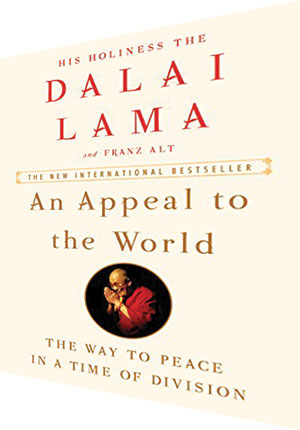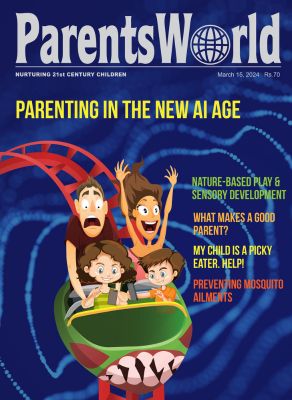An appeal to the world: The way to peace in a time of division, The Dalai Lama (with Fraz Alt), William Collins; Rs.1,622; 172 pp
 His Holiness Tenzin Gyatso, The 14th Dalai Lama and revered Buddhist spiritual leader, is one of the most widely-respected voices today for global peace and interfaith understanding. In this book, he makes a passionate appeal to the world for peace at a time of serious and constantly multiplying conflicts.
His Holiness Tenzin Gyatso, The 14th Dalai Lama and revered Buddhist spiritual leader, is one of the most widely-respected voices today for global peace and interfaith understanding. In this book, he makes a passionate appeal to the world for peace at a time of serious and constantly multiplying conflicts.
The peace the Dalai Lama has spent a lifetime preaching is rooted in secular ethics that he believes have universal applicability, beyond particular creeds. In this slim volume, he notes that violence has been routinely justified in the cause of religion through the centuries and that religion has been — and continues to be — used to attain political and economic objectives.
Hence, he suggests a set of ethics beyond religion, which can be helpful to atheists and agnostics, besides believers. It is based on values which do not contradict any religion, but don’t depend on any particular holy book or creed either. Rooted in our common humanity, the secular ethics His Holiness propounds may enable greater cross-cultural and inter-religious acceptance and thus serve as an acceptable basis for relationships between diverse communities. To this end, the Dalai Lama propagates what he calls “our fundamental human spirituality,” which he defines as “the affinity we humans have for love, benevolence, and affection — no matter what religion we belong to.”
In practical terms, the secular ethics His Holiness recommends as necessary for healthy relations between communities, creeds and countries in our times, requires us to focus and build on what unites, rather than what sets us apart. Emphasising that “humanity is all one big family”, he remarks that “we are still focusing far too much on our differences and not our commonalities”.
According to this sagacious leader who despite being in exile from his native Tibet for 59 years retains his cheerful demeanour, acknowledging our oneness and common humanity beyond religious and national boundaries is essential for global peace. This awareness enables people to think collectively about the future of the entire world, and also confront crises that threaten the whole planet rather than countries and local particularisms. “Whether we want to or not, we must live together,” says the monk. “Living together as brothers and sisters is the only way to peace, compassion, mindfulness, and more justice.”
Remarkably bereft of rancour, this compassionate leader truly believes that thinking big leads people from differing religious and national backgrounds to transform the way they relate to each other — moving from competition to co-operation. “The most important question we can ask for a better world is ‘How can we serve each other?’” says His Holiness. “If all seven billion humans first considered what unites and not what divides them, they will suffer less stress and less anger,” he adds.
Educating children and youth to change the world through peace, empathy and fraternity is a basic component of the Dalai Lama’s approach to global peace-building. This requires a major change in clarifying the aims and objectives of education at all levels. Education systems, says this revered seer, should focus not just narrowly on the brain, but also the heart. It should accord greater importance to strengthening impulses such as warm-heartedness, sense of unity and love inherent in humankind.
“At present, our educational systems are mainly oriented towards material values and training one’s understanding. We should place greater emphasis on inner values. Compassion and love have been neglected far too much in education,” he writes, urging that “we can and must change that now.”
Along with inner transformation His Holiness recommends rich strategies for peace-building at a broader level — primarily inter-religious dialogue as the means of conflict resolution. “The idea that problems can be solved with violence and weapons is a disastrous delusion. With rare exceptions, violence always leads to more violence. In our interconnected world, war is an anachronism that contradicts reason and ethics.”
For those yearning for peace in our badly bruised planet and searching for ways and means in the service of healing the world and making it a better, more harmonious place, this book is a precious gem.
Richard Thomas
Also read: Murphy’s Law victim




























